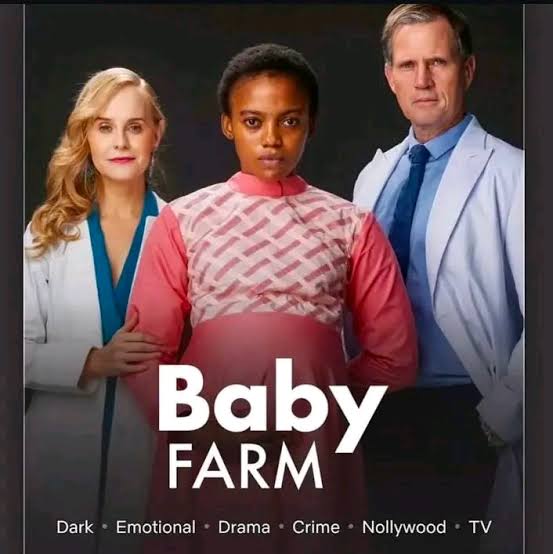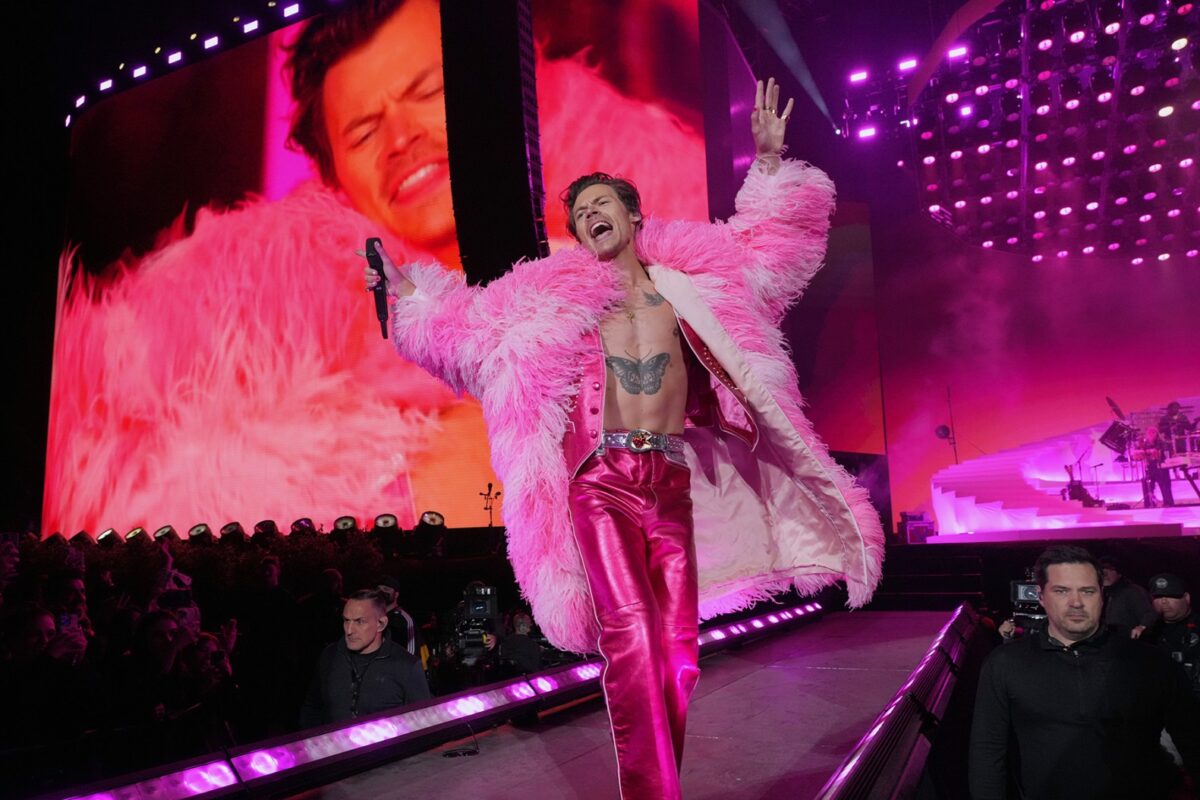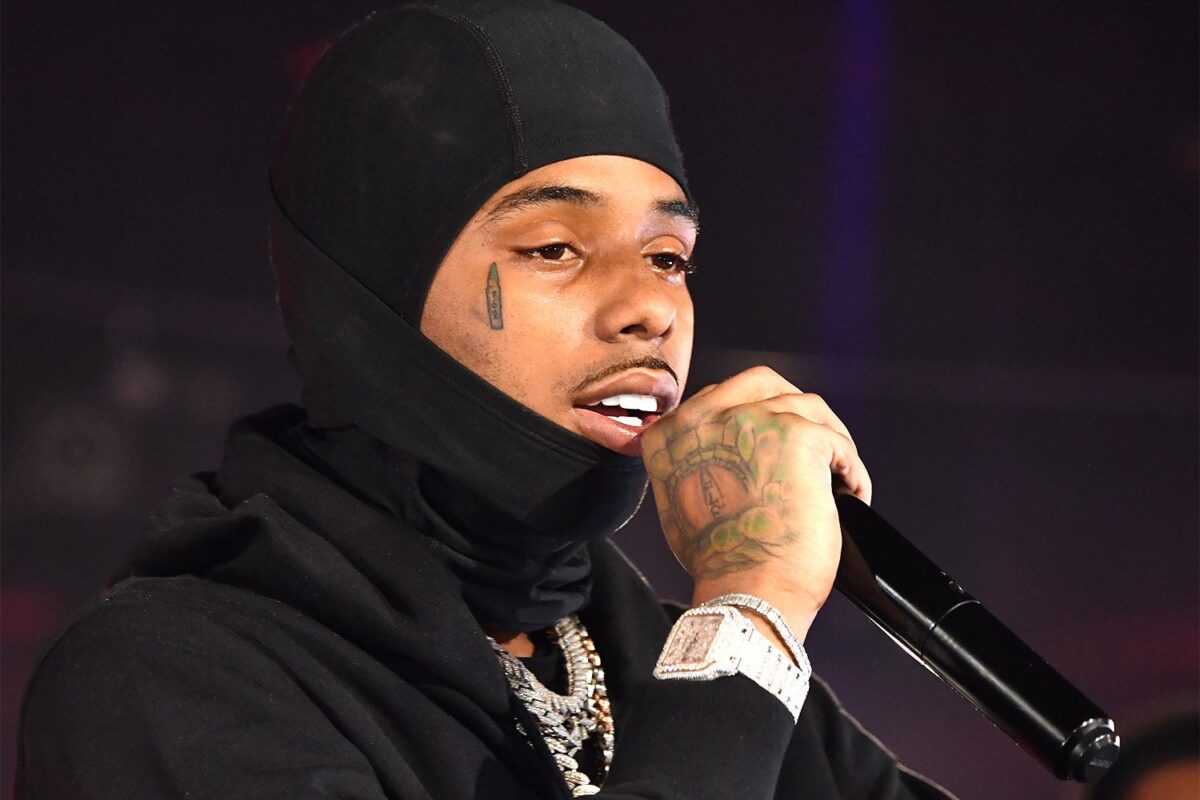Movie Review: What to know about EbonyLife Studios’ Baby Farm

EbonyLive Studios Baby Farm theatrical release poster. Photo Credit- Federal Character
EbonyLife Studios have yet again brought wonders to the screen with Baby Farm the latest production, which premiered on Netflix on March 21, 2025, delivering a chilling five-episode miniseries that tackles the painful world of baby trafficking. Mo Abudu served as the executive producer and co-directed by Walter “Waltbanger” Taylaur and Kayode Kasum, this Nigerian thriller aims to blend modern day social concerns with suspense, spotlighting a sinister NGO disguising as a beacon of hope. With a stellar cast and ambitious premise, Baby Farm promises much but had some flaws in its execution, yet earning a respectable critic success. This piece is set to review the movie’s plot, direction, casting, visual elements, and language.
Baby Farm’s plot and background
Several vices have begun to overshadow the Nigerian society and one of such is baby factory and baby trafficking. In a bid to raise caution to this strange wind blowing in the country, EbonyLive Studios had to create a compelling story representing and revealing the traumatic and heartbreaking experience of victims and those who are involved in it.
The story centers on Adanna (Onyinye Odokoro), a pregnant young woman who, abandoned and desperate to avoid family shame, entrusts her unborn twins to The Evans Foundation, a Lagos-based NGO run by the menacing Dr. Oliver Evans (Langley Kirkwood) and his wife Barbara (Jenny Stead). What begins as a lifeline quickly unravels into a nightmare as Adanna discovers the foundation’s true purpose: a baby farm that exploits vulnerable women, imprisoning them to harvest their infants for profit. Following Adanna’s traumatic experience, Ebun (Genoveva Umeh), a conflicted worker at the facility, and Mide (Rita Dominic), an actress desperate for a child, weave into the narrative, their fates unites in a tense battle for survival and redemption.The plot’s strength lies in its premise, a clear example of a real societal evil, and improved by twists like Adanna’s escape attempt and Ebun’s moral awakening.
However, there are faults with pacing issues; the first episode feels rushed, reflecting over Adanna’s backstory, while the final episode hastily combines the chaotic climax with it’s resolutions, leaving some worrying storylines, like Mide’s portion of the story, not well developed. Without doubt, Baby Farm has a compelling story but it does not fully give depth, some characters and their roles were left unexplored which could provide deeper meaning, sacrificing auteurship for accompany effects.
READ ALSO
Superman, Fantastic Four: Top 10 most anticipated movies of 2025
Lionheart, MTV Shuga… five Nigerian movies that champion girls’ child rights
Movie review: What to know about Funke Akindele’s Finding Me
Baby Farm’s direction style
Co-directors Taylaur and Kasum aim for a gritty, psychological thriller vibe, blending slow-burn tension with bursts of action. The directors were great in bringing out the uncomfortable scenes, like Adanna’s captivity in the farm’s desolate dormitories is easily perceived as oppressive. However, Baby Farm struggles with unity and consistency on the part of other characters and their roles in developing Adanna’s trauma. Transitions between the three main perspectives feels rushed, and the pacing hovers around slow and prolonged interpretation of the past, the beginning of the story, and hurried climaxes. A standout moment is Ebun’s confrontation with Barbara, where tight framing and sharp cuts amplify the stakes, yet elsewhere, the direction lacks polish, with abrupt edits undermining emotional beats. The ambition to merge social concerns with thrills of genres is clear, but the execution feels like a rough, hurried work of a bigger vision.
Baby Farm’s casting roles
The cast is Baby Farm’s most beautiful aspect, breathing life into the ideas of the producer and the directors. Onyinye Odokoro’s Adanna is a revelation, her raw portrayal of desperation and defiance takes the series, especially in scenes of physical and emotional strain, like her labor under compulsion. Genoveva Umeh steals the show as Ebun, infusing the role with a heartbreaking blend of foolishness and guilt; her evolution from complicit worker to reluctant hero is the film’s emotional core. Rita Dominic’s Mide, though not well developed, brings dignity to her limited screen time, her desperation for a child is easily seen in a haunting adoption scene.
Langley Kirkwood and Jenny Stead as the Evanses are suitably chilling, Kirkwood’s cold, scheming, and calculated menace is a difference to Stead’s fake human compassion, though their actions are just an exaggeration of people who exploit vulnerable young women. Supporting players like Joseph Benjamin (as a complicit doctor) and Tope Tedela (in a brief but impactful role) add depth, but the ensemble’s potential is curtailed by the script’s thin character development. This is a cast that could carry a masterpiece and they did a great job to lift the story to great moments.
Baby Farm’s visual elements
Visually, Baby Farm aims for a bold choice that enhances its cinematic feel, combining Lagos’ busy streets and the farm’s secret or remote building was a raw edge. Cinematographer Egor Povolotskiy’s scary palette, blended greens and grey to represent the story’s traumatic experience, with tight shots in the farm amplifying the sense of entrapment. Standout sequences, like Adanna’s escape through a dimly lit corridor, use shadow and movement to build suspense. The set design, from the NGO’s polished facade to the farm’s grim dorms, makes the narrative a clear example of real-life situation.
Baby Farm’s language style
This Netflix’s mini-series predominantly uses English and Pidgin, with little of Igbo, bringing out the Nigerian culture. The dialogue hovers around the formal English of the Evanses, exploring their advanced social status, and the local Pidgin of Adanna and Ebun, which carries emotional weight and originality. Lines like Ebun’s “Wetin we dey do here no good” (What we’re doing here is not good) resonate with raw honesty, while Igbo phrases during Adanna’s moments of despair add cultural texture. The language choices enrich character dynamics, though occasional stiffness in the English script, particularly in expository scenes, feels forced, slightly undermining the natural flow.
With a rating of 7.5/10, Baby Farm is a commendable effort from EbonyLife Studios, tackling a pressing issue with a talented cast and a bold visual style. Its plot hooks you with its dark premise, and the performances, especially Odokoro and Umeh, still elevate it beyond its flaws. Yet, uneven direction and a rushed narrative hold it back from greatness, leaving you wishing for a tighter edit and deeper character exploration. It’s not perfect, but it’s far from forgettable, a thought-provoking movie that may go on for generations if not always for the right reasons. For fans of Nollywood’s evolving storytelling and Netflix’s global slate, it’s worth the watch, please do not expect a 100% reward.




